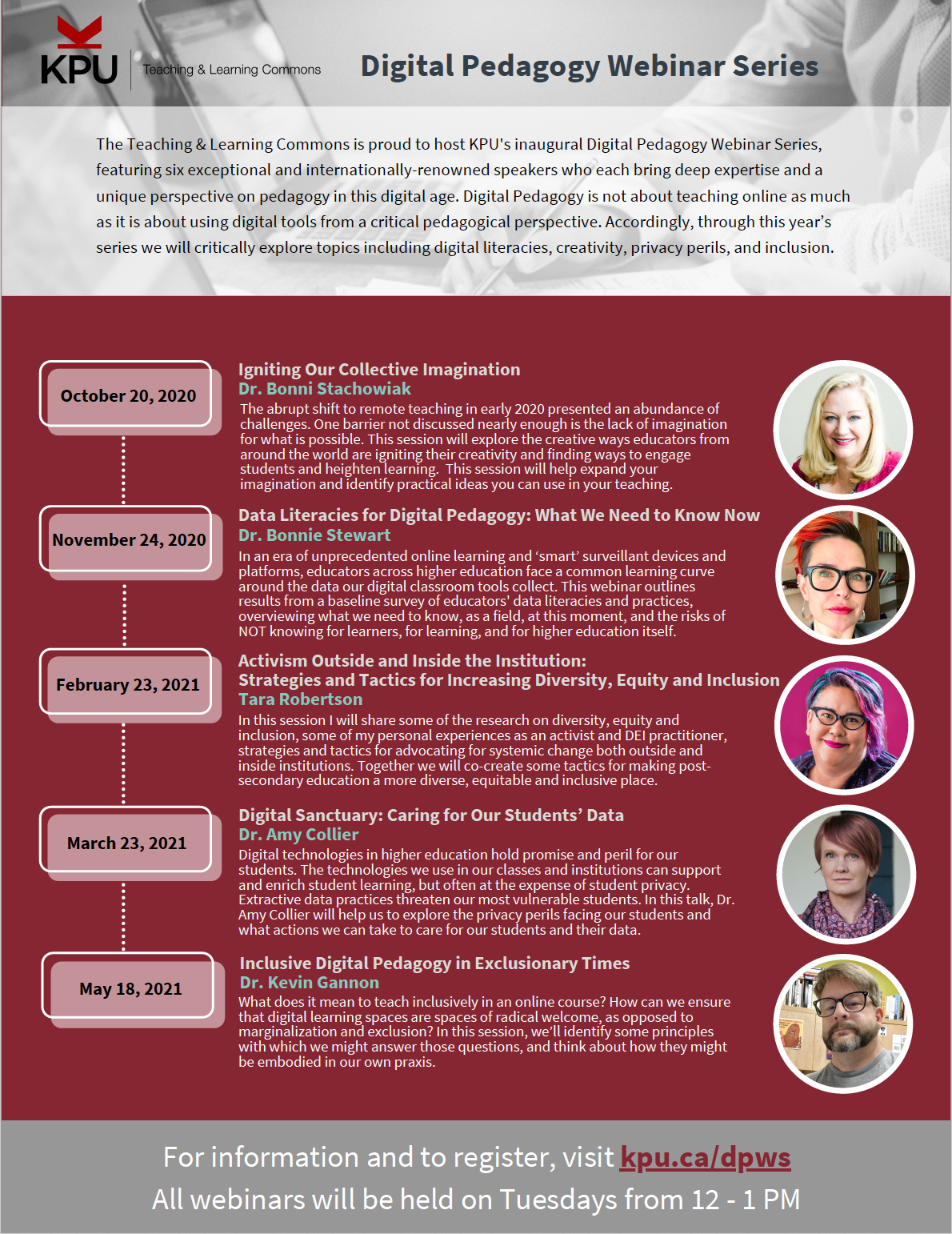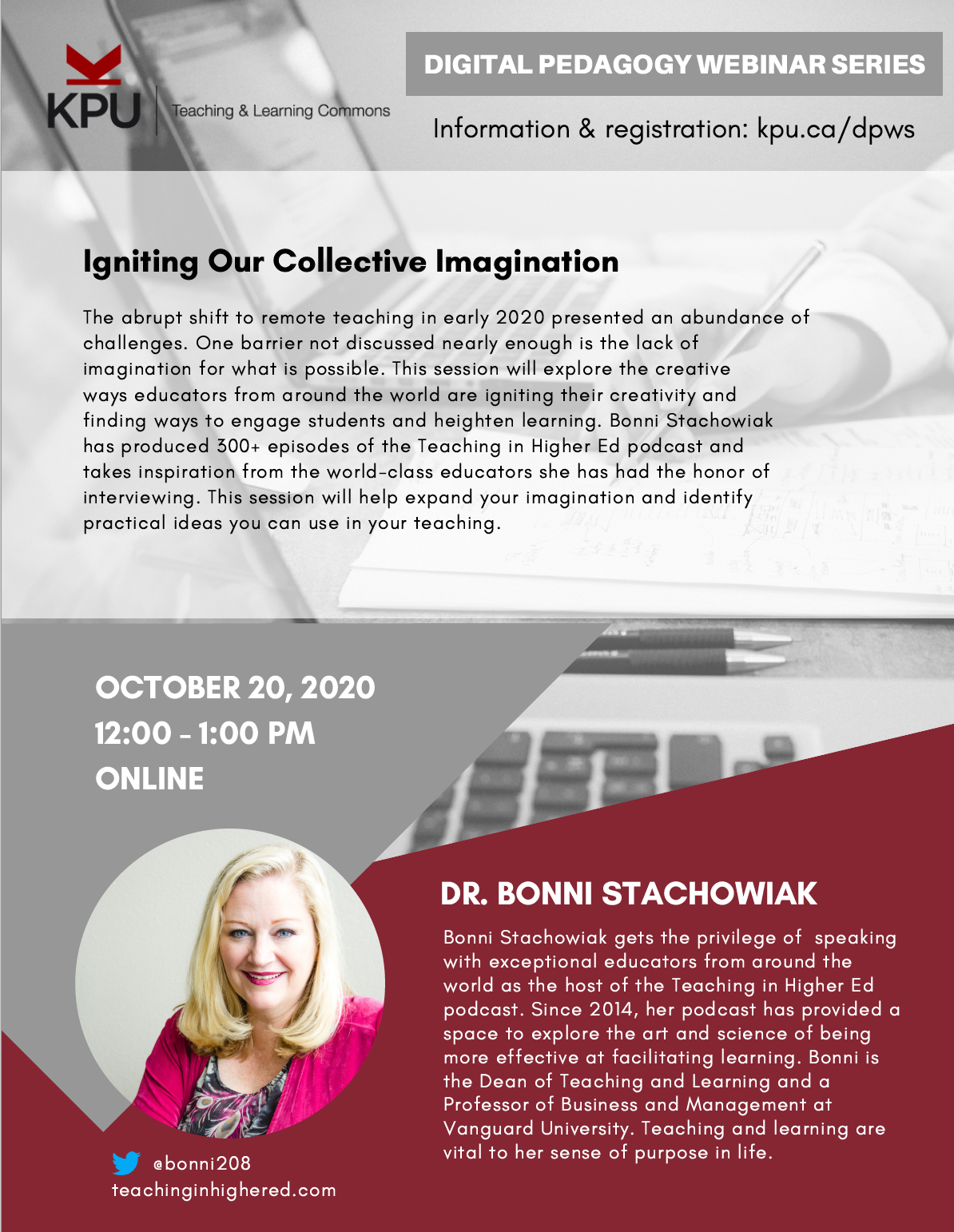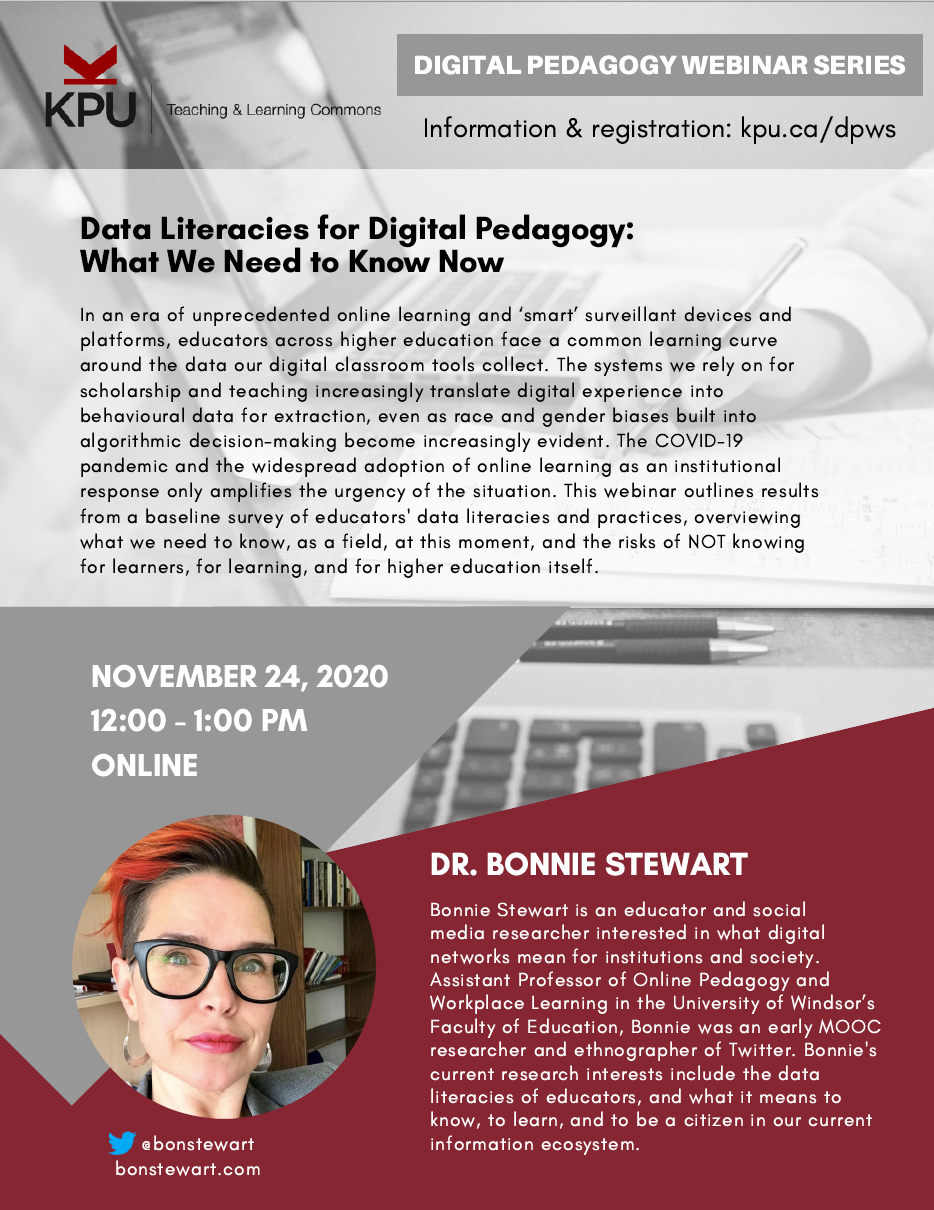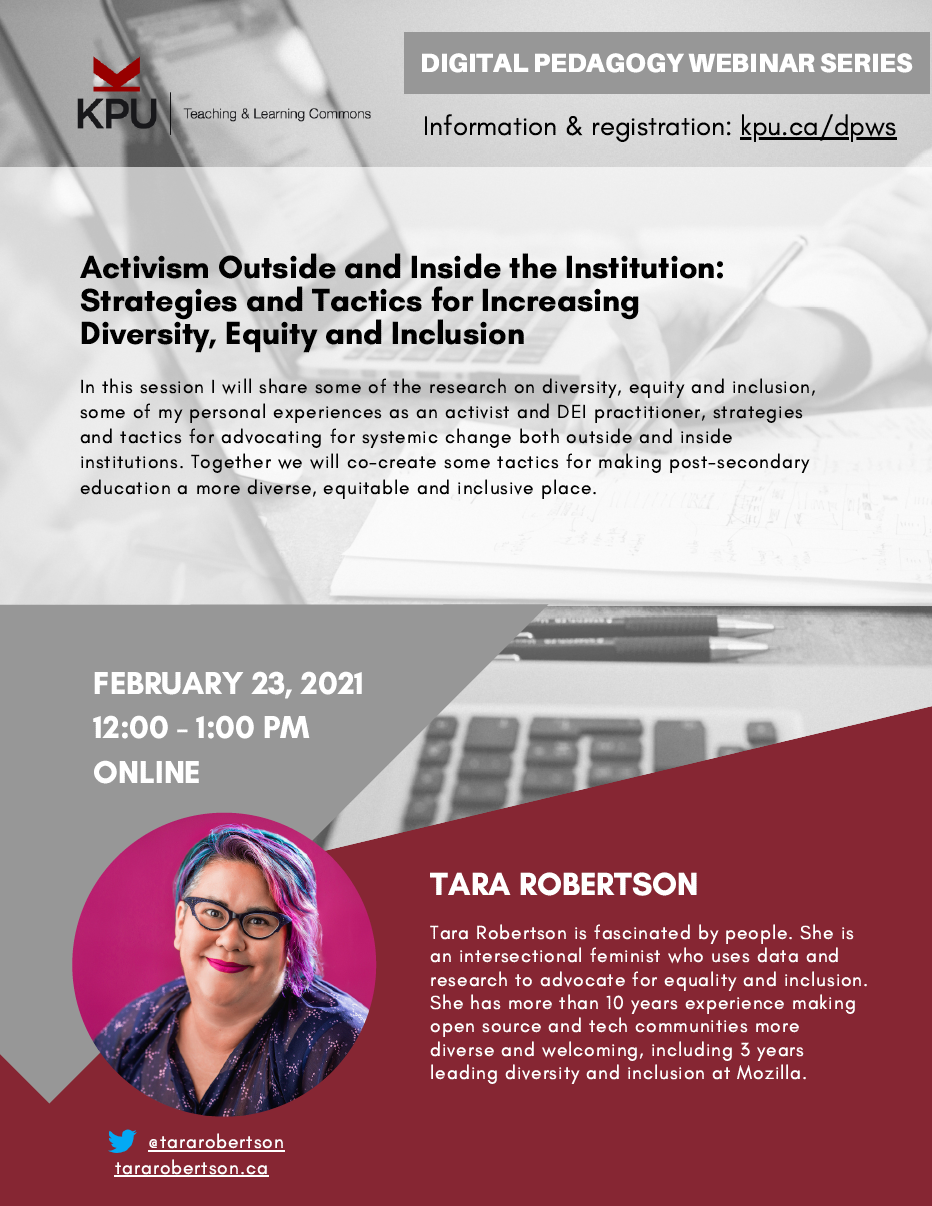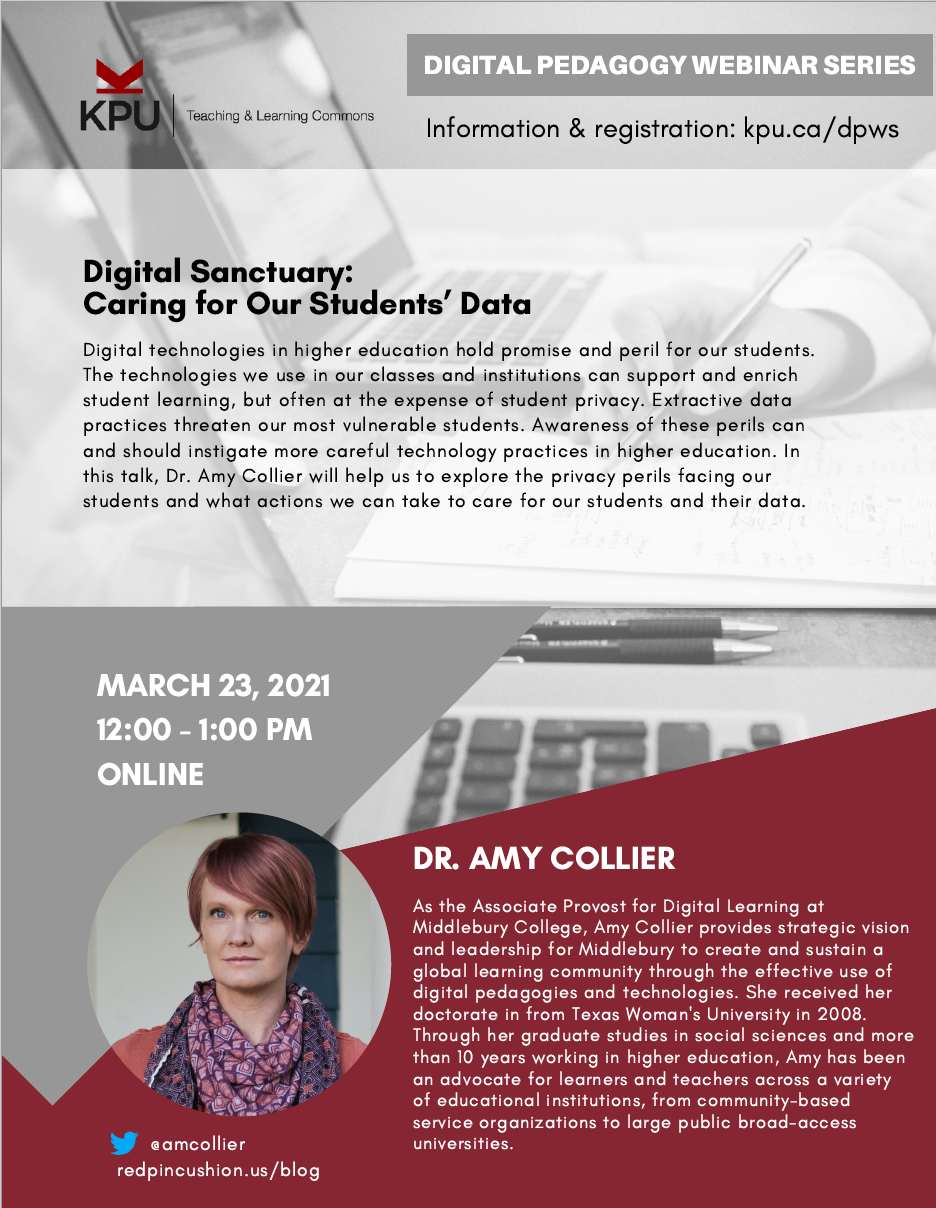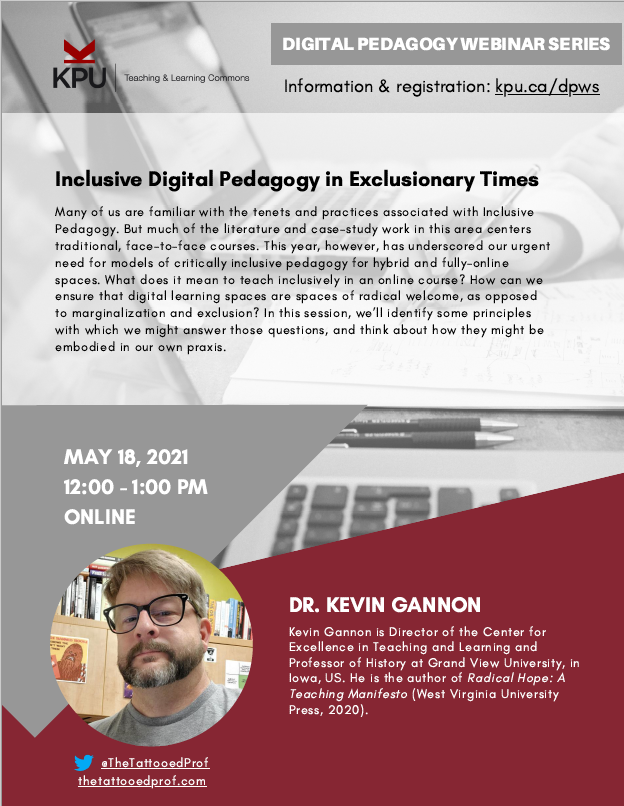Although each of these webinars will be recorded and made available for later viewing, registering using the webform below will enable you to engage in a live discussion with a speaker following their presentation.
October 20, 2020
Dr. Bonni Stachowiak
Bonni Stachowiak gets the privilege of speaking with exceptional educators from around the world as the host of the Teaching in Higher Ed podcast. Since 2014, her podcast has provided a space to explore the art and science of being more effective at facilitating learning. Bonni is the Dean of Teaching and Learning and a Professor of Business and Management at Vanguard University. Teaching and learning are vital to her sense of purpose in life.
Igniting our Collective Imagination
The abrupt shift to remote teaching in early 2020 presented an abundance of challenges. One barrier not discussed nearly enough is the lack of imagination for what is possible. This session will explore the creative ways educators from around the world are igniting their creativity and finding ways to engage students and heighten learning. Bonni Stachowiak has produced 300+ episodes of the Teaching in Higher Ed podcast and takes inspiration from the world-class educators she has had the honor of interviewing. This session will help expand your imagination and identify practical ideas you can use in your teaching.
November 24, 2020
Dr. Bonnie Stewart
Bonnie Stewart is an educator and social media researcher interested in what digital networks mean for institutions and society. Assistant Professor of Online Pedagogy and Workplace Learning in the University of Windsor’s Faculty of Education, Bonnie was an early MOOC researcher and ethnographer of Twitter. Bonnie's current research interests include the data literacies of educators, and what it means to know, to learn, and to be a citizen in our current information ecosystem.
Data Literacies for Digital Pedagogy: What We Need to Know Now
In an era of unprecedented online learning and ‘smart’ surveillant devices and platforms, educators across higher education face a common learning curve around the data our digital classroom tools collect. The systems we rely on for scholarship and teaching increasingly translate digital experience into behavioural data for extraction, even as race and gender biases built into algorithmic decision-making become increasingly evident. The COVID-19 pandemic and the widespread adoption of online learning as an institutional response only amplifies the urgency of the situation. This webinar outlines results from a baseline survey of educators' data literacies and practices, overviewing what we need to know, as a field, at this moment, and the risks of NOT knowing for learners, for learning, and for higher education itself.
February 23, 2021
Tara Robertson
Tara Robertson is fascinated by people. She is an intersectional feminist who uses data and research to advocate for equality and inclusion. She has more than 10 years experience making open source and tech communities more diverse and welcoming, including 3 years leading diversity and inclusion at Mozilla.
Activism Outside and Inside the Institution: Strategies and Tactics for Increasing Diversity, Equity and Inclusion
In this session I will share some of the research on diversity, equity and inclusion, some of my personal experiences as an activist and DEI practitioner, strategies and tactics for advocating for systemic change both outside and inside institutions. Together we will co-create some tactics for making post-secondary education a more diverse, equitable and inclusive place.
March 23, 2021
Dr. Amy Collier
As the Associate Provost for Digital Learning at Middlebury College, Amy Collier provides strategic vision and leadership for Middlebury to create and sustain a global learning community through the effective use of digital pedagogies and technologies. She received her doctorate in from Texas Woman's University in 2008. Through her graduate studies in social sciences and more than 10 years working in higher education, Amy has been an advocate for learners and teachers across a variety of educational institutions, from community-based service organizations to large public broad-access universities.
Digital Sanctuary: Caring for Our Students’ Data
Digital technologies in higher education hold promise and peril for our students. The technologies we use in our classes and institutions can support and enrich student learning, but often at the expense of student privacy. Extractive data practices threaten our most vulnerable students. Awareness of these perils can and should instigate more careful technology practices in higher education. In this talk, Dr. Amy Collier will help us to explore the privacy perils facing our students and what actions we can take to care for our students and their data.
May 18, 2021
Dr. Kevin Gannon
Kevin Gannon is Director of the Center for Excellence in Teaching and Learning and Professor of History at Grand View University, in Iowa, US. He is the author of Radical Hope: A Teaching Manifesto (West Virginia University Press, 2020).
Inclusive Digital Pedagogy in Exclusionary Times
Many of us are familiar with the tenets and practices associated with Inclusive Pedagogy. But much of the literature and case-study work in this area centers traditional, face-to-face courses. This year, however, has underscored our urgent need for models of critically inclusive pedagogy for hybrid and fully-online spaces. What does it mean to teach inclusively in an online course? How can we ensure that digital learning spaces are spaces of radical welcome, as opposed to marginalization and exclusion? In this session, we’ll identify some principles with which we might answer those questions, and think about how they might be embodied in our own praxis.
